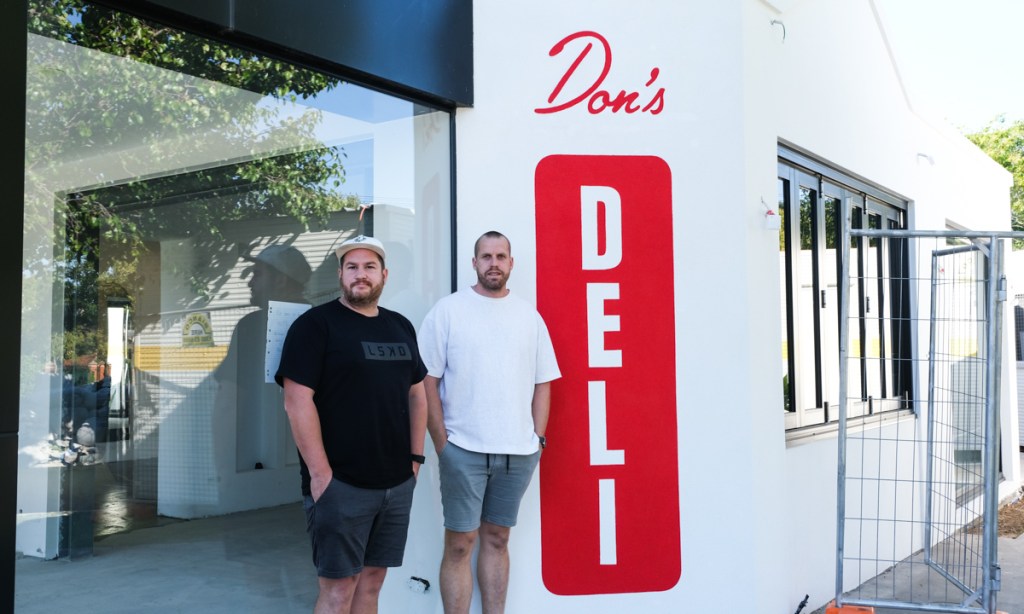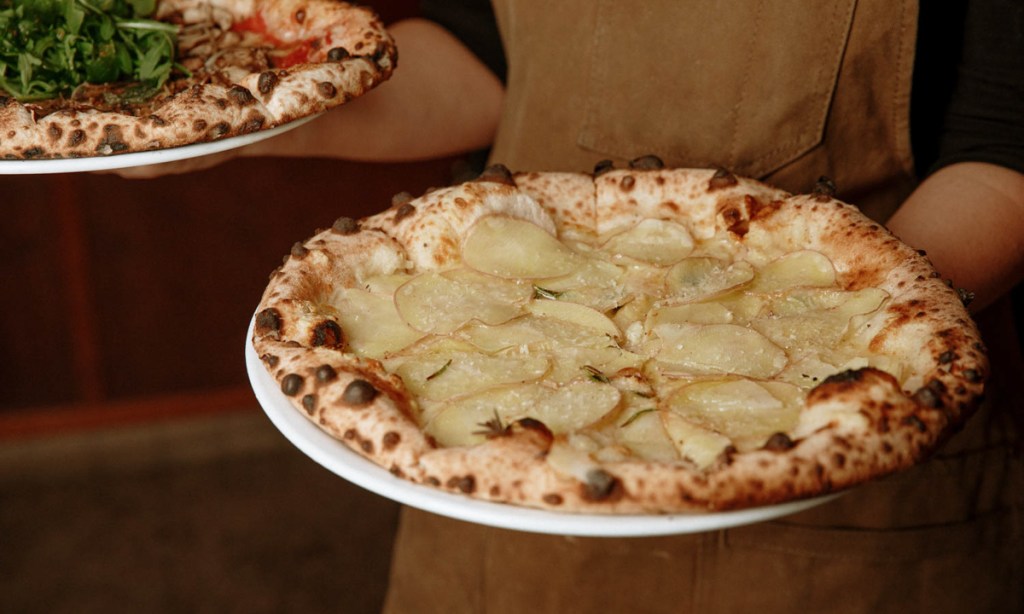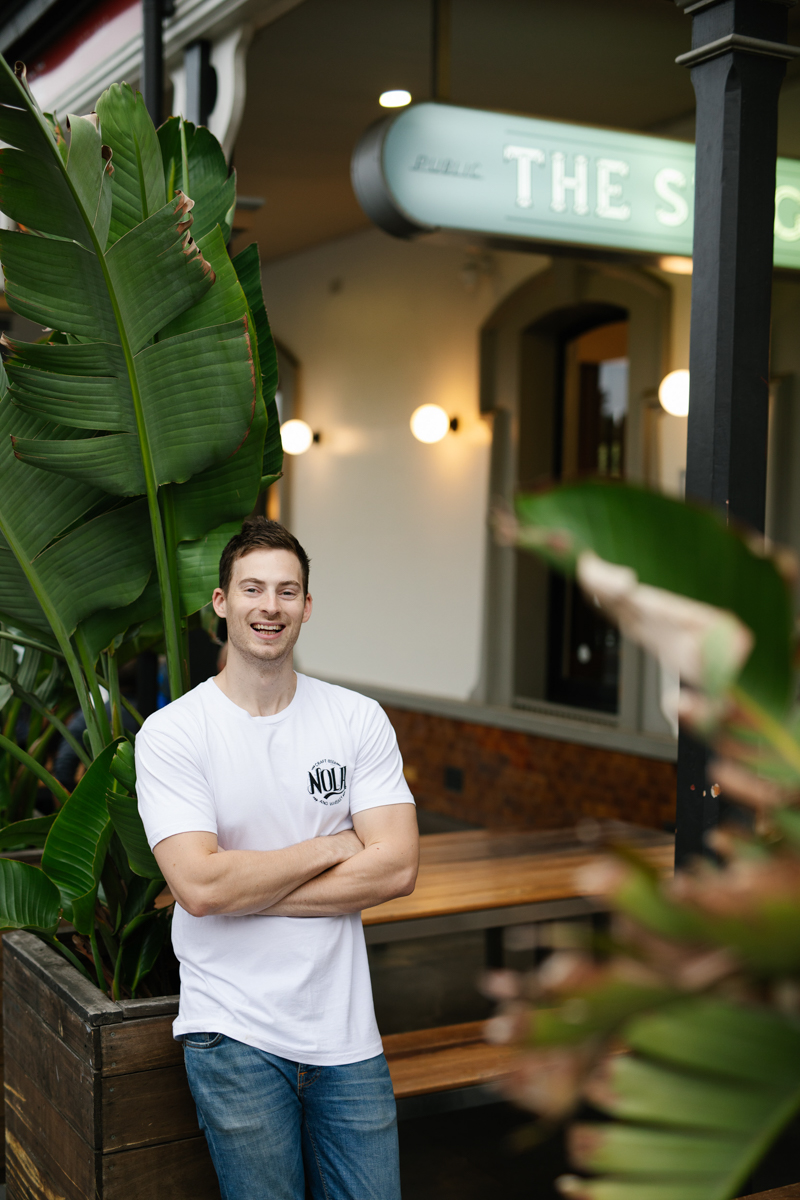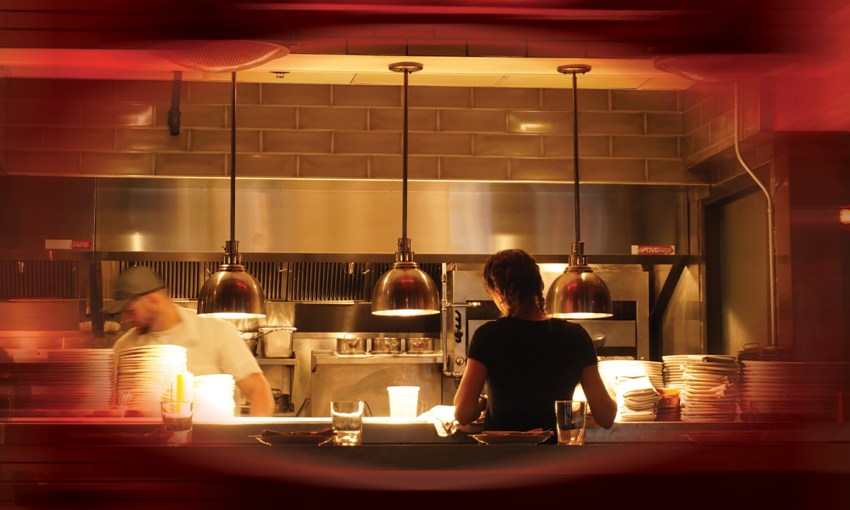Hospitality operators are concerned about their businesses, staff and industry during the cost of living crisis. CityMag looks into the issues, stresses and taxes all taking their toll.
‘An absolute bloodbath’: how hospo owners are navigating tough times
There have been some drastic changes to Adelaide’s hospitality industry in the past six months.
Since November, 12 hospitality businesses have shut up shop. Inside the long list of casualties include Enzo’s, Cherry Darlings, Crack Kitchen, Lost in a Forest and most recently, Cardone’s.
Are you a hospitality owner with a story to tell? Let us know.
So, CityMag had to ask: are we living in a hospitality crisis?
Spreading the cash
We sat down with Sam Worrall-Thompson, director of EMBR Hospitality, who co-owns Dolly, Fettle, Bar Lune and Spread.
Within two weeks, he announced two upcoming ventures to CityMag, Don’s Deli and Oliveti — both set to open in coming months.
Despite continuing to expand his businesses, Sam feels “like the last six months has been way harder than COVID”.
“People always talk about COVID, I mean we had just opened [Bar Lune], but I would have to say now is way harder than COVID — way harder,” Sam says.
“COVID you’re getting most of your wages paid for. This [Bar Lune] was new so it felt like we were probably the shiny new toy.”
Sam says his sandwich shop Don’s Deli was born from an idea to “to try and top up cash flow”. Don’s Deli’s revenue will support the expenses of Bar Lune, with the two businesses working together and the funds going in the same pot.
“We’re trying to make things happen where there’s no risk versus turnover,” Sam says.
“You’ve got to make things happen, you can’t sit here — the government’s not going to do anything.”

Co-owners Sam Worrell-Thompson and Josh Dehaas outside of their upcoming venue Don’s Deli. This picture: Claudia Dichiera.
Don’s Deli will be a “hole in the wall” located next to a salon across the road from Bar Lune. It’s set up as a takeaway sandwich business with no indoor seating available.
Sam says Don’s Deli will initially operate “on a serious budget” and will hopefully create “some steady income”.
“I think the wine bars where people are spending, they’re the ones that are dropping off a bit. I think people still have to get lunch, do you know what I mean?” Sam says.
“This is what we’re trying to do with Dolly – we’re trying to make it more approachable, more affordable because yeah, we wanted to be this high-end wine bar, but in the current market, it just doesn’t work enough.
“People don’t have that disposable income.”
Sam recognises the financial benefits of a smaller business and admits sandwiches and Italian cuisines are “quite cost-effective”.
Another way he’s trying to cut costs is setting up a production kitchen from his business Fettle on Tuesdays where there’s usually no one in there, a method that is, again, cost-effective and helps with consistency across their products.
New here? Sign up to receive the latest happenings from around our city, sent every Thursday afternoon.
Sam says the government can help hospitality businesses by cutting payroll tax.
“It’s fucked. It’s like 100 grand a year that we didn’t know about two years ago,” he says. “So you get punished for growth, essentially.
“They’re talking about maybe reducing that… but that doesn’t help every business.
“I think the closures that we’re talking about now, I reckon it’s just the start. I reckon it’s going to be an absolute bloodbath for six months.
“And it’ll be good businesses [that close] as well, it won’t be people that run a bad operation. It will literally be some of the best that I think we need to try and keep them open somehow.”
Can the state government step in?
We asked Small and Family Business Minister Andrea Michaels about inflation rates, cost of living pressures and her opinion on recent hospitality closures.
Michaels says she is committed to “delivering a strong economy and creating jobs so we continue to do everything we can to support a thriving hospitality sector”.
Just yesterday, Michaels announced the introduction of Small Business Week, which is a “week-long program of free development and networking events”.
We asked the Minister if any policies or grants will be put in place for hospitality businesses, similar to the See it Live grants program for live music venues.
She told us that in July 2023, the Labor Government introduced the Small Business Strategy, which represents $14.25 million investment into seeing small businesses prosper.
Michaels says the fundamentals program specifically assists small business owners to “strengthen their capability across a range of areas core to running a profitable business including financial management, strategic planning and marketing”.
Basically, the Small Business Strategy contains “20 practical initiatives and programs to support small businesses”.

Part of the Anchovy Bandit offering. This picture: supplied.
We asked Oliver Brown, director of The Big Easy Group – which owns Anchovy Bandit, La Louisiane, NOLA and more – if they had turned to these “programs to support small businesses” in the last six months.
As an owner of established businesses, Oliver says they haven’t.
“It’s a pretty document but attending an annual Small Business Week isn’t really going to help me fight rising wages, cost of goods, increased insurance or reduced patronage due to a reduction in consumer spending,” Oliver says.
“The items in this plan are useful for very specific issues such as cybersecurity which is great and important. But for this to be referenced as a way for hospitality to survive, not even to thrive, is embarrassing.”
What business owners want to see
Instead, Oliver says a range of financial solutions would better assist hospitality owners during this cost-of-living crisis.
Oliver points to excise tax and payroll tax as hinderances to hospitality, and a factor in other businesses that went into administration.
“Especially in the craft brewery industry, which has been decimated, they should look at reviewing the thresholds for excise tax,” he says.
“Everyone that went into administration, you look at their books and it was huge amounts owing to the ATO from excise tax, I think that’d be a massive one.”
Oliver says payroll tax is a huge expense for businesses as it’s based on dollars of wages rather than per cent profit.
“So when you have a really high-wage heavy industry, I think you’re disproportionately affected by payroll tax. That’s a massive one,” he tells CityMag.
Oliver suggests government subsidies on insurance increases would help businesses as this is “something that hospo gets slogged with” due to drinking at venues increasing risk.
“And then the council should delete outdoor dining costs as well. They went up so significantly in the last 12 months… this causes more stress to hospitality.”
To see what Oliver meant, CityMag checked out the City of Adelaide’s outdoor dining fee calculator to see how much it costs to dine al fresco.
For a 10m2 central activity and main street area space over two years – which would be a conservative drinking deck – it costs $926 for outdoor dining.

Oliver Brown standing beside Big Easy venue The Stag, which is currently up for sale. This picture: supplied.
Oliver attributes part of Big Easy’s ability to work through this cost-of-living crisis to forecasting. He began to see notable changes in October/November 2023 but says “we definitely still haven’t solved the problem” as it’s something they re-evaluate week by week.
“We run a lot of stuff — we try and forecast revenue and that helps you decide how many staff you need to have on and how much stock to order,” Oliver says.
“Then when those forecasts fall short consistently through lower spend per heads or lower covers, it takes a bit of time to realise that that’s a trend and not just a once-off.
“I think [this is] the delayed effect — this started happening in the middle of last year, like really noticeably, and I think now is just the result of that.
“People just can’t go on any longer, and they just probably missed the boat and by the time they realised, it might have been too late.”
Oliver says he has noticed people are going out less and “spend per head’s down and covers are down across all of [their] venues”.
As a result of inflation growth and cost of living pressures, Oliver says The Big Easy Group “are changing how they do things” including the way they operate.
“It’s a little bit of everything — I think if you go after one element is probably too big a shift to actually move the needle,” he explains.
“So for us, we’re approaching it on from every angle: so price increases, wage reductions, cost of goods reductions, as well as just trying to be a little bit more efficient and be more effective.”
Although The Big Easy Group have a strong hospo ethos and brands with loyal followings, Oliver says “it’s still challenging”.
“I guess, telling someone that there’s less hours on the roster for the same amount of people this year compared to last year is still hard,” Oliver says. “So you definitely can’t underestimate the kind of pressure it puts on all of the teams and the stress it puts on the whole organisation.
“The venues are still busy and people still coming in, that’s one part of the problem solved. It’s now just getting numbers to stack up in the backend.”




